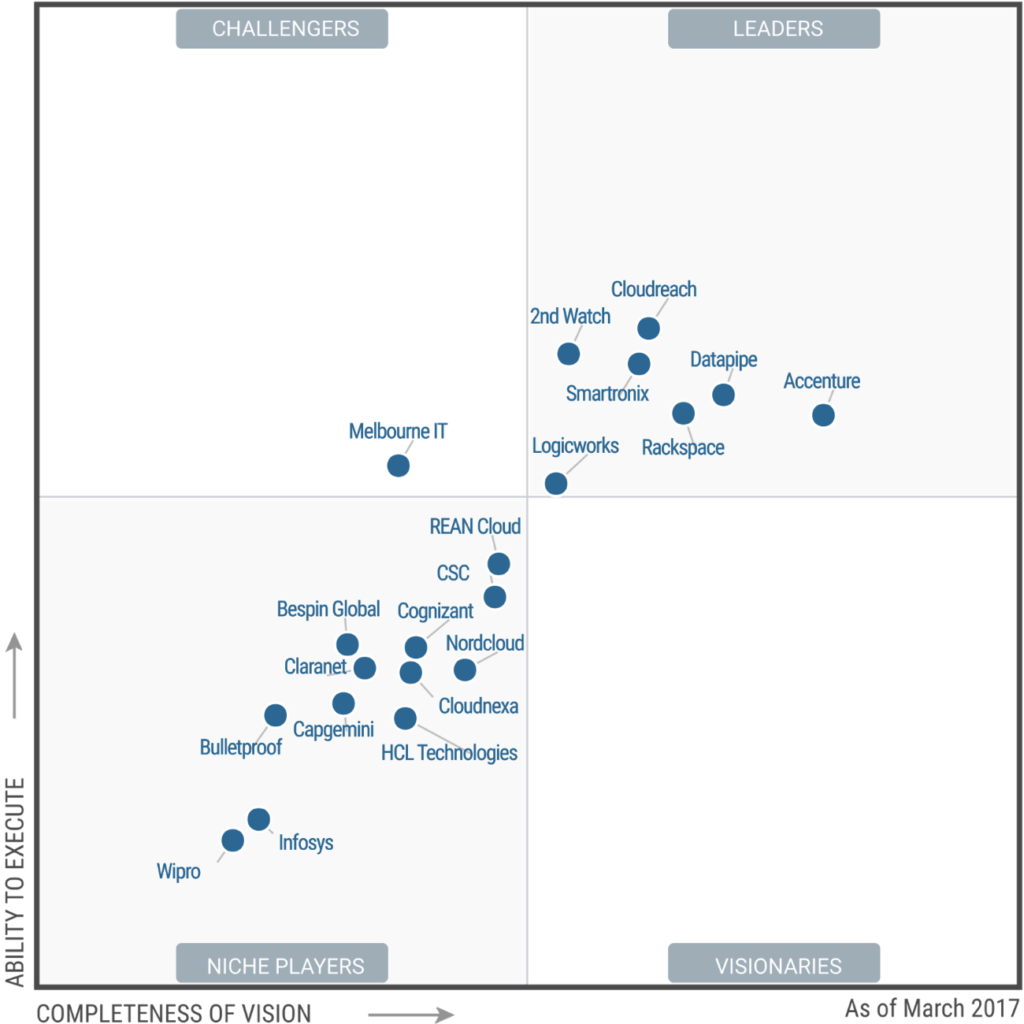The managed cloud service market has been experiencing rapid growth in the past few years on the back of cloud computing industry growth. Though cloud itself has been around for a lot longer than a decade, commercial adoption has only picked up the pace in the past few years. The Infrastructure as a Service market, or IaaS, was estimated to be worth only $22 billion in 2016, while global IT spending runs in the trillions.
Make no mistake. IaaS providers do most of the heavy lifting when it comes to managing the infrastructure, but you still need your own team in place to handle it. The velocity with which new services and functionalities keep tumbling out of the cloud service providers’ cupboards is so high due to the constant evolving nature of the underlying technologies, that the learning curve is quite steep.
For example, Amazon Web Services added nearly 1000 new services last year, and 700 in the year before.
Some IT departments will prefer to do the hard yards and do the IaaS management part on their own, but some companies will definitely need assistance – or at least the assurance that you have skilled cloud experts on standby to cover you when needed. This is where third-party managed cloud service providers can step in and assist companies.
Leading market research firm Gartner regularly releases its analysis of various technology segments, and they have picked the leaders of the managed cloud service providers as of March 2017.

Gartner evaluates companies based on their capabilities, and ranks them based on their Vision and Execution. The ideal spot is to be as far right and to the top as possible. Companies in the first quadrant thus become the natural leaders of the segment. In this case, it has placed Accenture, Datapipe, Rackspace, Cloudreach, 2nd Watch, Smartronix and Logicworks in the first quadrant.
You can access the detailed Gartner Research Report here.
That said, Gartner doesn’t actually have a say in reality. Rackspace, as you can see below, is currently the global leader in managed cloud. Rackspace was an early proponent of cloud, but not possessing the agility and speed of Amazon, the company has accepted its fate as a cloud manager rather than a provider. That’s immaterial now, because Rackspace is the biggest and best at what it does.

The managed cloud market is growing at rapid clip, and is expected to be worth $110 billion by 2018. Most of these providers offer assistance to companies that are using Amazon Web Services and Microsoft Azure.
A lot of them are not yet offering support for Google Cloud Platform simply because Google was late to the cloud party, but we expect that to change as GCP usage grows.
Coincidentally, Rackspace just yesterday announced that “a strategic relationship with Google Cloud to become its first managed services support partner for Google Cloud Platform (GCP).”
But Gartner has identified at least four companies with greater ability to execute managed cloud projects than Rackspace, and it remains to be seen how quickly they can actually catch up to Rackspace.
Along with the growth of cloud, there will be a growing need for managed cloud – not only because it requires skill and training, but because the rate of evolution of cloud-based services is so high, as we’ve seen.
We don’t know whether Rackspace will still be at the top of the managed cloud industry ten years from now, but we know that they’ll have a lot more business coming their way in the meantime. And just a little bit of competition, as Gartner’s findings imply.
Thanks for reading our work! We invite you to check out our Essentials of Cloud Computing page, which covers the basics of cloud computing, its components, various deployment models, historical, current and forecast data for the cloud computing industry, and even a glossary of cloud computing terms.



